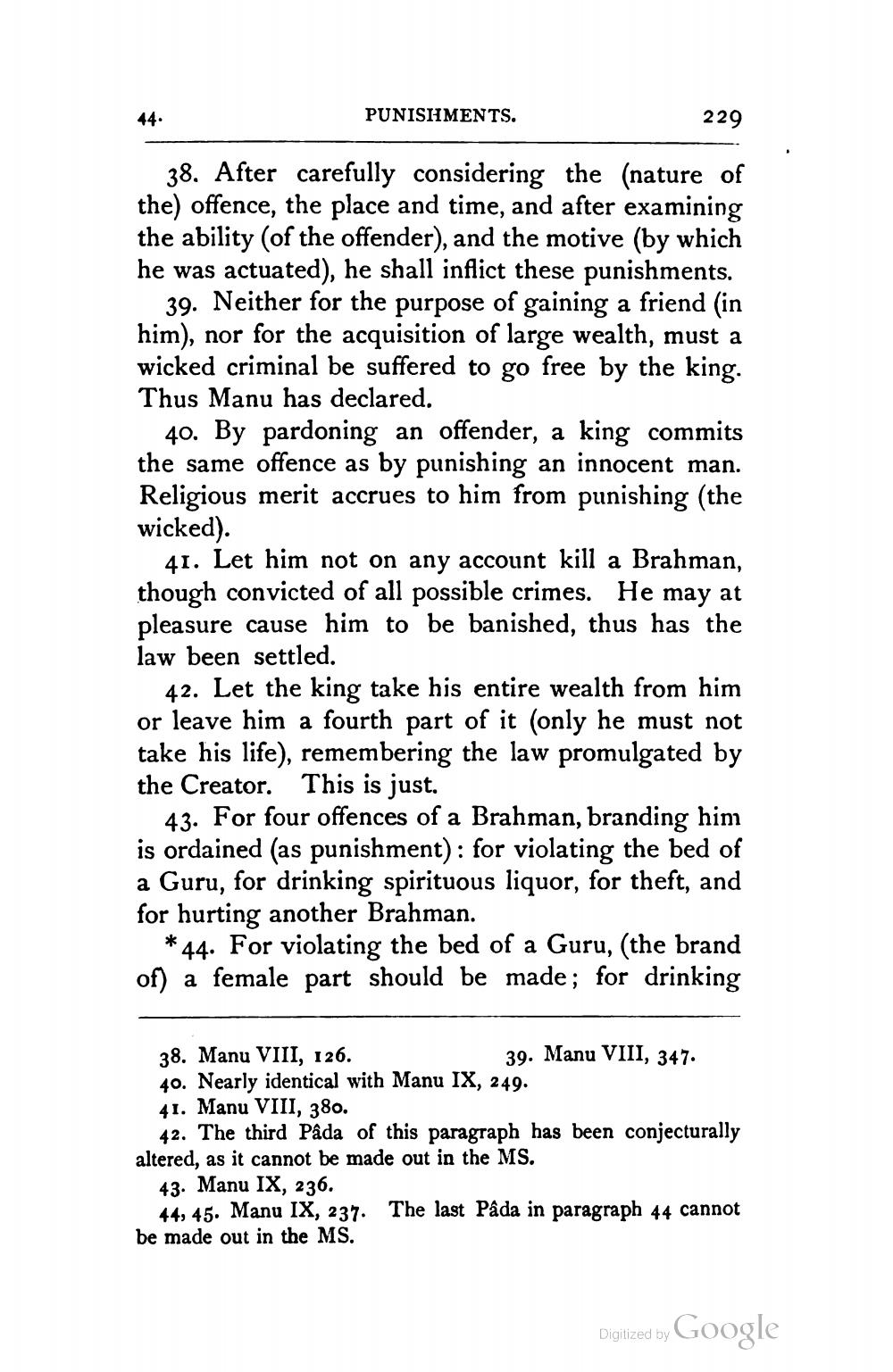________________
PUNISHMENTS.
229
38. After carefully considering the nature of the) offence, the place and time, and after examining the ability (of the offender), and the motive (by which he was actuated), he shall inflict these punishments.
39. Neither for the purpose of gaining a friend (in him), nor for the acquisition of large wealth, must a wicked criminal be suffered to go free by the king. Thus Manu has declared.
40. By pardoning an offender, a king commits the same offence as by punishing an innocent man. Religious merit accrues to him from punishing (the wicked).
41. Let him not on any account kill a Brahman, though convicted of all possible crimes. He may at pleasure cause him to be banished, thus has the law been settled.
42. Let the king take his entire wealth from him or leave him a fourth part of it (only he must not take his life), remembering the law promulgated by the Creator. This is just.
43. For four offences of a Brahman, branding him is ordained (as punishment): for violating the bed of a Guru, for drinking spirituous liquor, for theft, and for hurting another Brahman.
*44. For violating the bed of a Guru, (the brand of) a female part should be made; for drinking
38. Manu VIII, 126.
39. Manu VIII, 347. 40. Nearly identical with Manu IX, 249. 41. Manu VIII, 380.
42. The third Pâda of this paragraph has been conjecturally altered, as it cannot be made out in the MS.
43. Manu IX, 236.
44, 45. Manu IX, 237. The last Pada in paragraph 44 cannot be made out in the MS.
Digitized by Google




